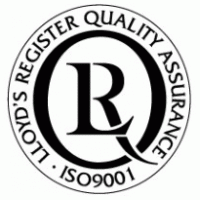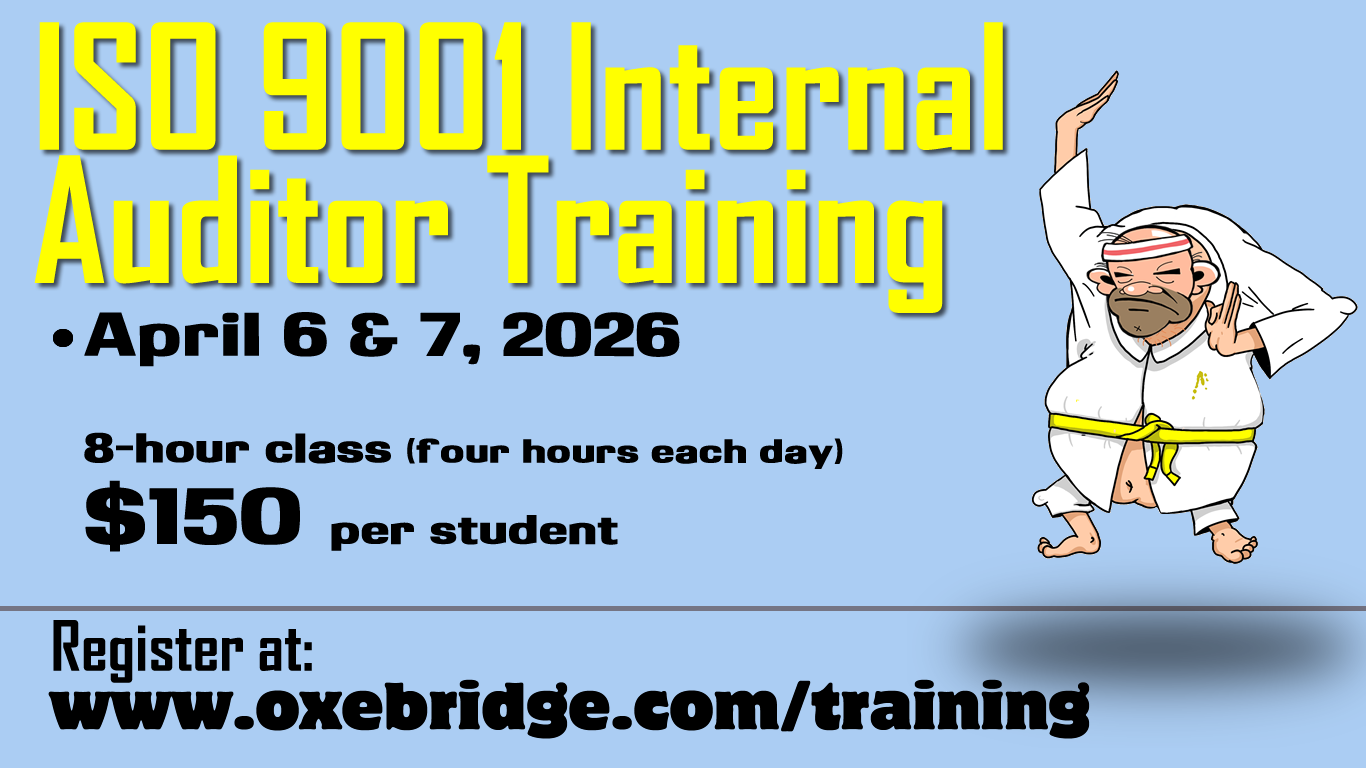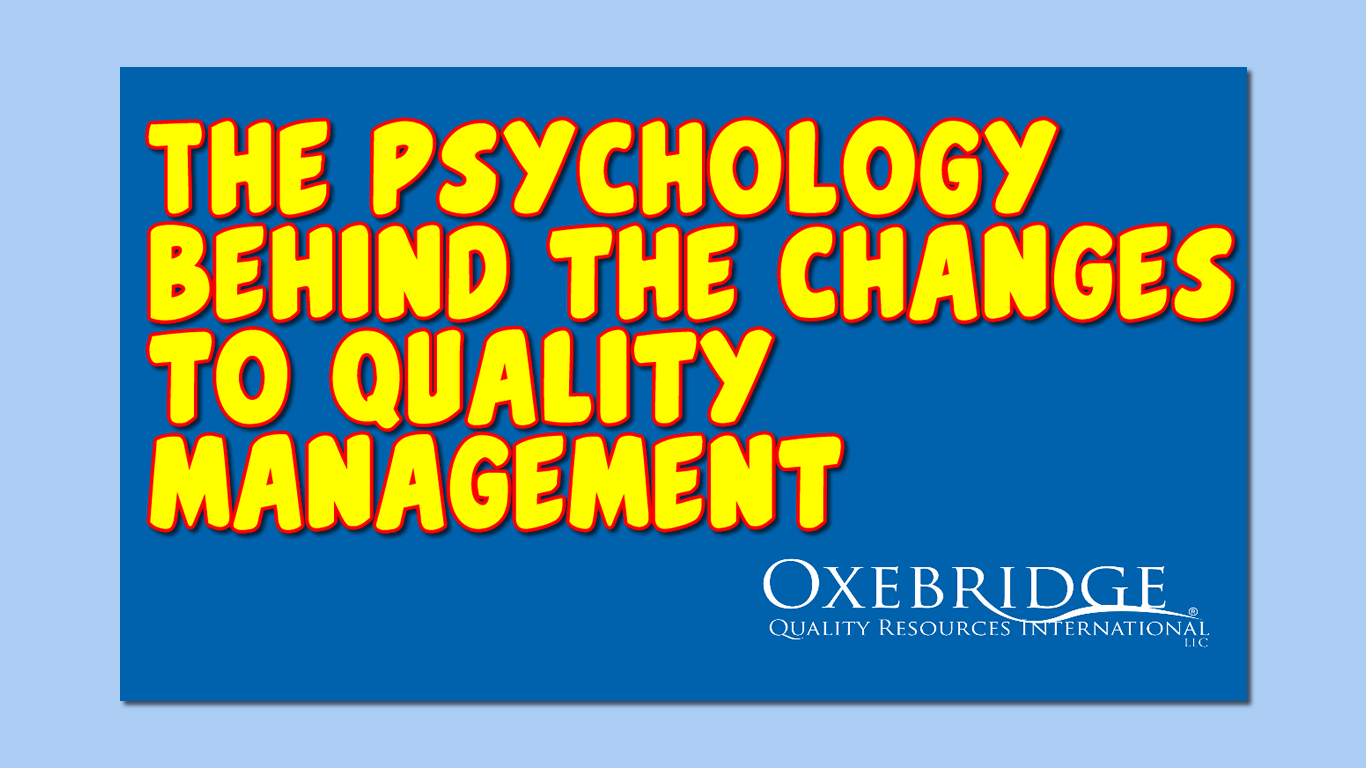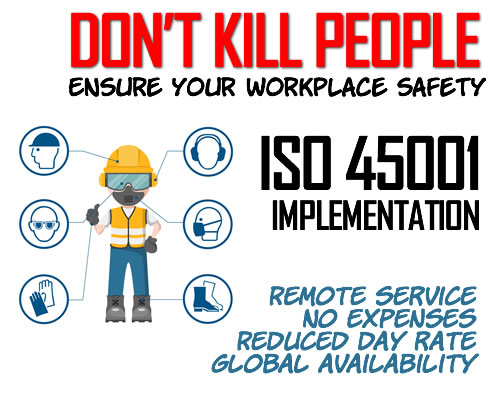Oxebridge has filed a formal complaint with Lloyd’s Register QA (LRQA) in the UK alleging violations of ISO 17021-1, the rules that govern accredited ISO 9001 certification bodies. The complaint was prompted by the discovery of LRQA’s online “Pathway” gap assessment tool which is used by potential clients to assess their readiness for certification to ISO 9001 and other standards. The Oxebridge complaint notes that LRQA’s marketing for the Pathway tool indicates that users will then receive “tips” on closing any gaps prior to certificatoin, which the complaint alleges constitutes consulting, and thus a prohibited activity for accredited certification bodies (CBs).
LRQA markets the Pathway tool on its website by claiming:
LRQA’s Pathway service is a free online self-assessment tool to enable you to check the readiness of your management system for certification.
Simply select the management system standard you are looking at implementing and you will be taken through to an online questionnaire.
Answer the questions honestly and you will be presented with a report outlining any potential weaknesses in your management system.
It then goes on to say:
LRQA will provide tips to help you rectify the gaps found and provide you with relevant support options to enable you to successfully gain certification.
The Oxebridge complaint, filed earlier today, points out that ISO 17021-1 clause prohibits the provision of “client-specific advice” by any CB which later intends to certify the client:
5.2.5 The certification body and any part of the same legal entity shall not offer or provide management system consultancy.
5.2.7 The certification body shall not certify a management system on which a client has received management system consultancy or internal audits, where the relationship between the consultancy organization and the certification body poses an unacceptable threat to the impartiality of the certification body.
ISO 17021-1 defines “management system consultancy” as:
Participation in establishing, implementing or maintaining a management system.
EXAMPLE: Giving specific advice, instructions or solutions towards the development and implementation of a management system.
Oxebridge argues that the provision of client-specific “tips to rectify [ISO 9001] gaps” which are based on the unique information provided by a client constitutes “specific advice.” The purpose of the rule is to ensure that CB auditors do not audit and certify systems that they had a hand in creating, as that is a conflict of interest.
In 2014, Oxebridge filed a previous complaint against LRQA after it was learned they certified Hoerbiger Hungary, which had been discovered to be using a forged, counterfeit LRQA ISO 9001 certificate in order to gain access to a lucrative contract with INA Oil. LRQA denied the claim, without providing evidence, and later threatened to sue Oxebridge. It then placed a worldwide “server ban” on any emails sent from the Oxebridge domain to anyone in the LRQA’s international organization, cutting off the complaint. Oxebridge appealed to UKAS, LRQA’s accreditation body, citing an additional allegation of violation on the basis that ISO 17021-1 requires CBs to formally and transparently process stakeholder complaints. UKAS ruled with LRQA, again providing no evidence. The matter was then escalated to the IAF which adopted UKAS’ ruling nearly entirely, despite LRQA having acknowledged the original Hoerbiger certificate was a forgery. Forging documents to gain access to open bid contracts is illegal under the laws of the countries involved.
As a result of the server ban, which remains in place some two years later, Oxebridge was forced to submit the new complaint through its Gmail account.
LRQA has so far not acknowledged receipt of the complaint. You may read the full complaint here.








